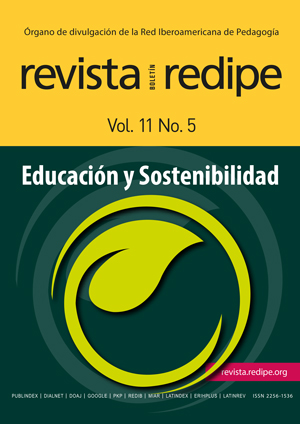Lecciones aprendidas al capacitar al adulto mayor en el uso de las tecnologías de la información y la comunicación
##plugins.themes.bootstrap3.article.main##
Keywords
Adulto mayor, Tecnologías de la información y comunicación, Talleres temáticos, Enseñanza, Aprendizaje
Resumen
En la actualidad los adultos mayores viven en una sociedad de comunicación e información por la introducción generalizada de las tecnologías de la información y la comunicación (TICs). Por lo que, la tecnología está directamente relacionada con el modelo de desarrollo, entre el crecimiento económico y el desarrollo social. Por lo anterior, consideramos que es importante capacitar al adulto sobre el uso de las TICs . En este artículo presentamos las lecciones aprendidas al capacitar durante cuatro años consecutivos a 80 adultos mayores sobre el uso TICs. La capacitación consistió en talleres temáticos prácticos impartidos por estudiantes de las carreras de tecnologías de la información. Los cuales se centraban en la enseñanza de aplicaciones relacionadas con pagos de servicios (p. ej. electricidad), procesos gubernamentales y de servicios (p. ej. expedición de acta de nacimiento en línea, y comunicación (p. ej. uso de redes sociales). Las lecciones aprendidas fueron las siguientes: (1) Se debe sensibilizar a los participantes sobre el proceso de envejecimiento; (2) Utilización de un lenguaje asertivo para el trabajo con adultos mayores; (3) Informar al adulto mayor sobre el beneficio del uso de las TICs; (4) Ofrecer al adulto mayor un acompañamiento psicosocial para proveer retroalimentación inmediata durante su capacitación; y finalmente, (5) Propiciar el aprendizaje colectivo a través de grupos de interés sobre las TICs.
Referencias
Barcia, B. Q., González, M. M., & Martínez, A. V. (2020). Brecha Digital en Adultos Mayores: Accesibilidad Tecnológica y Redes Sociales. GIGAPP Estudios Working Papers, 7(166-182), 744-757.
Borisonik, D. (2012). Emociones y Taller de escritura en adultos mayores sobrevivientes del Holocausto. Psicodebate, 12, 23-38.
Bronswijk, J. E., Bouma, H., Fozard, J. L., Kearns, W. D., Davison, G. C., & Tuan, P. C. (2009). Defining gerontechnology for R & D purposes. Gerontechnology, 8(1), 3.
Casamayou, A., & González, M. J. M. (2017). Personas mayores y tecnologías digitales: desafíos de un binomio. Psicología, Conocimiento y Sociedad, 7(2), 152-172.
Chlup, D. T., & Collins, T. E. (2010). Breaking the ice: using ice-breakers and reenergizers with adult learners. Adult Learning, 21(3-4), 34-39.
Consejo Nacional de Población y Vivienda (2020). El envejecimiento de la población mundial, 11-18. Recuperado de http:// www.conapo.gob.mx/publicaciones/ enveje2005/envejev01.pdf [Accedido en marzo de 2021]
Davis, F. D. 1987. User acceptance of information systems: The technology acceptance model (TAM). Working Paper 529. School of Business Administration, University of Michigan.
De la Torre, F., Morales, D., Quiroz, C. P. (2015). Gerontecnología: rapid review y tendencias mundiales. Revista mexicana de ingeniería biomédica, 36(3), 171-179.
Fernández-Portero, C. (1999). La gerontología: una nueva disciplina. EA, Escuela abierta: revista de Investigación Educativa, (3), 183-198.
Formosa M. (2019) Educational Gerontology. In: Gu D., Dupre M. (eds) Encyclopedia of Gerontology and Population Aging. Springer, Cham. https://doi. org/10.1007/978-3-319-69892-2_411-1
García, E. G., & Heredia, N. M. (2017). Personas mayores y TIC: oportunidades para estar conectados. RES: Revista de Educación Social, 24, 1098-1098.
Gaskell, T. (2000). The process of empirical research: a learning experience?, Research in Post-Compulsory Education, 5(3), 349-360.
González, A. M. R. (2015). La política pública de vejez en México: de la asistencia pública al enfoque de derechos. Revista Conamed, 19(2).
González-Oñate, C., Fanjul-Peyró, C., Cabezuelo-Lorenzo, F. (2015). Uso, consumo y conocimiento de las nuevas tecnologías en personas mayores en Francia, Reino Unido y España. Comunicar: Revista Científica de Comunicación y Educación, 23(45), 19- 28.
Juste, M. R. P., Carballo, J. G. S., & López, B. R. (2015). Las personas mayores y las TIC. Un compromiso para reducir la brecha digital. Pedagogía Social. Revista Interuniversitaria, (26), 337-359.
Llorente-Barroso, C., Viñarás-Abad, M., & Sánchez-Valle, M. (2015). Mayores e Internet: La Red como fuente de oportunidades para un envejecimiento activo= Internet and the Elderly: Enhancing Active Ageing. Mayores e Internet: La Red como fuente de oportunidades para un envejecimiento activo= Internet and the Elderly: Enhancing Active Ageing, 29-44.
Okumura, Masato; Stampini, Marco; Buenadicha Sánchez, César; Castillo, Ana; Vivanco, Fermín; Sánchez, Mario; Ibarrarán, Pablo; Castillo Martínez, Paula (2020). La economía plateada en América Latina y el Caribe: El envejecimiento como oportunidad para la innovación, el emprendimiento y la inclusión. Banco Interamericano de Desarrollo.
Sánchez Celis, G. A., Alvarado Valencia, L. D. M. (2015). Diseño de una estrategia mediada por TIC para el desarrollo de competencias de lectura y escucha en la enseñanza-aprendizaje del francés como lengua extranjera. Recuperado https://ciencia.lasalle.edu.co/lic_ lenguas/151
Silva Morín LA, Escalera Silva LA, López Estrada RE. Experiencia digital de los adultos mayores frente al COVID-19: el caso del programa universidad para los mayores de la Universidad Autónoma de Nuevo León. México. bol.redipe [Internet]. 2 de octubre de 2020 [citado 5 de abril de 2022];9(10):217-36. Disponible en: https://revista.redipe.org/index.php/1/ article/view/1100
Trujillo Hernández L. (2014). Impacto de las TIC en la educación de los adultos mayores en Flandes (Tolima, Colombia). Ventana Informática, 33 (jul-dic), 109-124.
Wrenn, J., & Wrenn, B. (2009). Enhancing learning by integrating theory and practice, International Journal of Teaching and learning in higher education, 21(2), 258-265.



